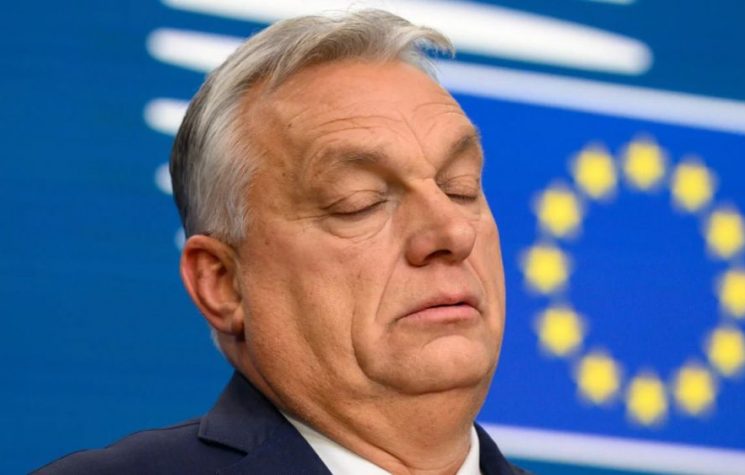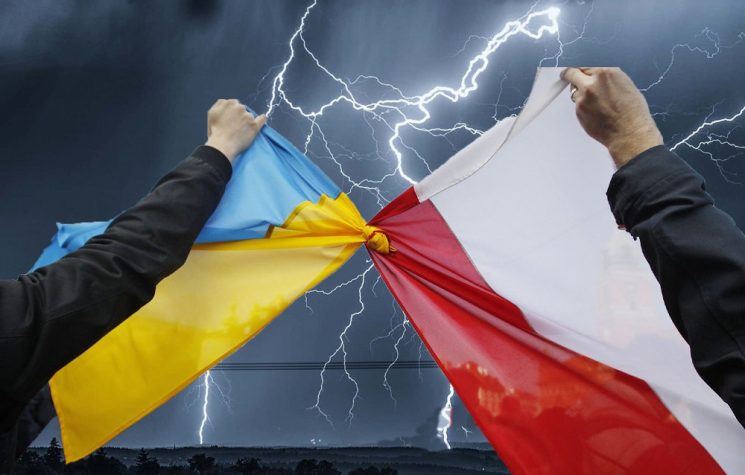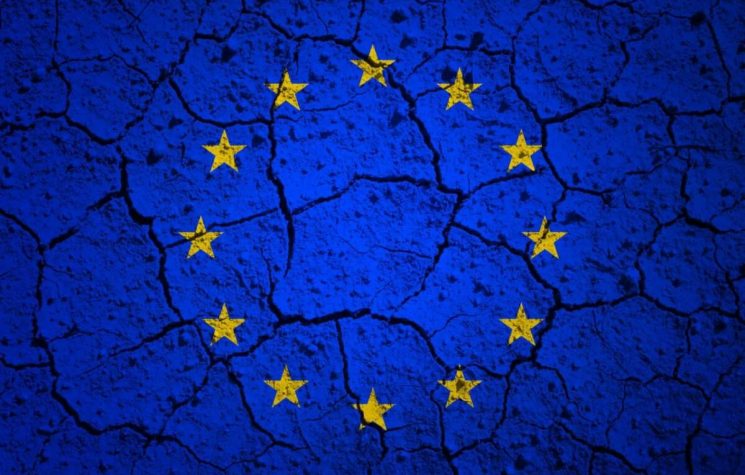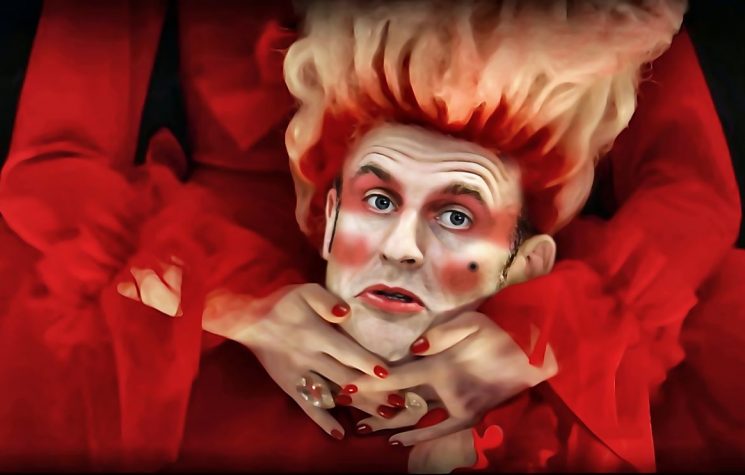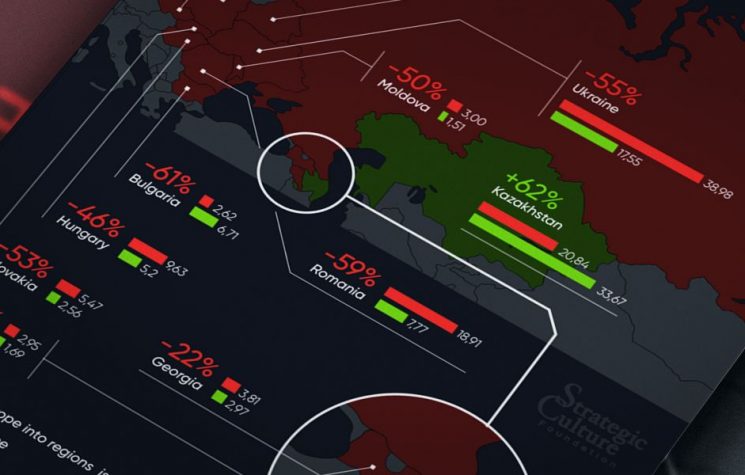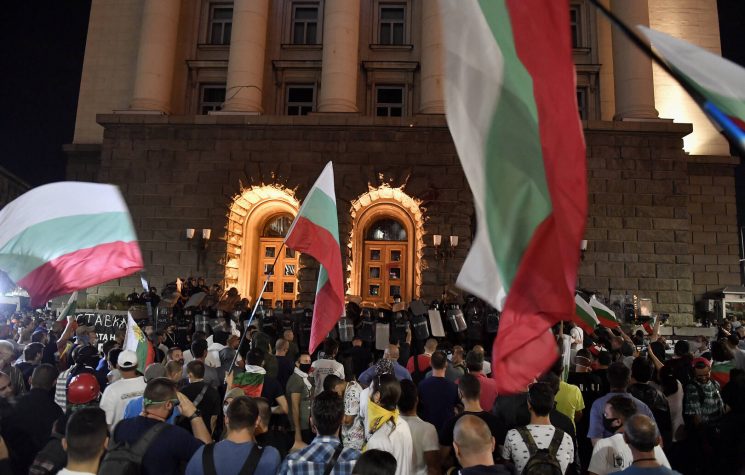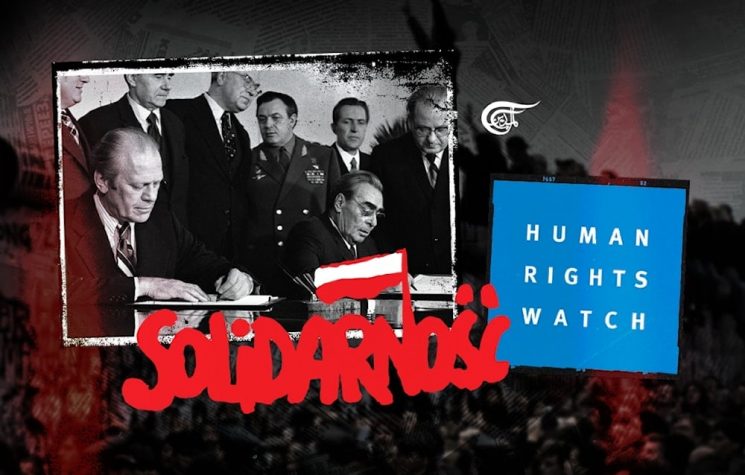Belonging to the European Union begins to resemble those dreams that delight us while we sleep, but when we wake up, we realize that they are just that, dreams.
Contact us: info@strategic-culture.su
An important part of the tensions created in Eastern Europe, close to Russia’s borders, has to do with an illusion that is created, according to which the entry, in itself, into the European Union, produces a set of unquestionable benefits, the which are otherwise not attainable. But are those benefits so unquestionable?
In a European Union whose economy is increasingly cannibalized and contained by the USA, whose power summit often hides the fact that this threat is the most serious and limiting of all, currently, the realistic future that this bloc represents for the adhering countries, does not go beyond very anemic forecasts of economic growth and, even more serious, crowned with the demand for confrontation with Russia, which completely remove the assumption, according to which, membership in the restricted club of western Europe represented, above all, a guarantee of peace and security.
The Ukrainian case is the most extreme, but whether it is Georgia, Moldova, Serbia, Montenegro or any other country that belonged to the USSR or the “socialist bloc”, the request is always the same: joining the EU means joining NATO, joining NATO means being an enemy of Russia. In an increasingly pronounced way, being an enemy of Russia also means giving up of free relations with what is currently the greatest source of economic, scientific and technological growth in the world, which is China. And this is, perhaps, next to enmity with the Russian world, the most expensive bargaining chip that a nation has to pay, to belong to the select Western “garden”.
The West has long ceased to represent the greatest source of economic growth. Decades of purposeful deindustrialization, neoliberalism and F.I.R.E economy have reversed this reality. From a position of expansion, the West moved to a position of containing other people’s expansion. Today, the greatest guarantee of economic growth, for any nation, consists of its relations with the BRICS (India, China and Russia will be the 3 countries that will grow the most in 2024, according to the IMF).
If for countries like Portugal, Greece or Spain, the currency of exchange was measured in liberalization of markets and privatization of national resources, so that Western transnationals could enter and acquire what was previously in the country’s possession; as a result of its geographical condition and its shared historical identity with Russia and the countries of Eastern Europe, economic demands come coupled with an authentic declaration of enmity.
This requirement has dramatic effects in these countries. Ukraine is here to demonstrate it. As Georgia proves now and as Moldova will prove tomorrow, as Serbia also feels. Agreeing to join the EU means declaring war on a part, often a considerable or even majority, of your own population. In other words, neither growth, nor peace, nor security, nor even the right to memory. Can anyone extract anything constructive from the fact that hundreds of thousands of Russians living in Estonia are no longer able to speak, read and celebrate their language and history? I find it hard to believe.
As in the Ukrainian case, what is proposed to these people is that they give up their past history, their cultural and even religious foundations and replace them with a future, presented as radiant, but, in reality, uncertain. Not even the most blind can deny the process of destruction of Russophone and Russophile culture in Ukraine, particularly following the euroMaidan coup d’état. As they cannot deny the West’s loss of influence in the world and the crisis that looms on its horizon.
In this context, the organization that presents itself as the guarantee of peace in Europe, constitutes, in this new era, an almost certain path to war. They may say that “it’s Russia’s fault, which prevents them from joining Western structures because it doesn’t want to lose its dominance.” But, after Russia itself, in times of its own illusion, tried to join the Western club and was denied, it is not normal that this country began to look suspiciously at those who compete, by the way, for space close to its borders? Does any country like to be surrounded by enemies?
Thus, this vertigo or illusion that, by belonging to the EU, a country automatically belongs to the elite and will have its future filled with abundant riches involved in the highest “European values”, threatens to tear entire nations apart. The requirement that, in order to join, you have to give up your past is simply unacceptable to many people. Which is understandable: what kind of future can be based on an empty, disowned, cursed past? Joining the EU means, for Eastern European countries, a permanent war with their past. Take the case of Bulgaria or Slovakia.
But don’t think that, for southern European countries, not demanding such a currency of exchange, everything results in certain and undeniable gains. From an economic point of view, the story is far from univocal. We can say that the economies of these countries were united, not by membership, but by incorporation into the select Western club. As for their own people, and their living conditions, they still await the much-desired “convergence”.
However, it is also not serious to say that the entry of these countries into the European Union represented an absolute setback since the start. It’s a bit like being poor among rich. Being poor, among poor people, is much worse. Portugal, for example, when it entered the European Economic Community, was struggling with brutal infrastructure gaps. The active population was very poorly qualified, in terms of salary, it was among the poorest in all of Europe. In this sense, the potential for taking advantage of access to a market of hundreds of millions of people was very high. This reality ended up being reflected in shelves full of never-before-seen products, even though most exchanges were often unable to buy them. But, in the beginning, even this problem seemed promising and seemed to be resolved. To this end, the European Union provided millions in structural funds, which would bring national development.
For a country like Portugal, the community funds received were accompanied by a demand for the destruction of its industry, agriculture and fisheries. All this, in exchange for the transformation into a service economy. As someone once said, the roads that were built with the funds were not built for the Portuguese; They were made for Central Europe to place its products and tourists here.
From 1986 to 2029, Portugal and the EU will have “invested” more than 200 billion euros in structural funds. It would not be serious to say that they will be of no use. But being an apparently disconcerting amount, the truth is that the country paid much more than the mere purchase of products and services from northern and central Europe.
Currently, when we look at the visual contrast provided by the passing of very old cars, surrounding others, as expensive as they are rare… We cannot help but feel a bittersweet taste. At best! Portugal is the EU country with the most employed workers living below the poverty line, many also becoming homeless, sleeping on streets with the best hotels and the most competitive apartments for tourist rental.
The eternal crisis and austerity constitute the legacy of the second phase of European accession, which resulted from entry into the Eurozone. Reduced economic and wage growth, deregulation of labor laws and the right to housing, at the same time that privatizations, public-private partnerships and benefits for Western monopolies multiplied. All justified by the new ambition: “budgetary containment”. The declared objective was no longer peace, growth and development. They became the “right national accounts”.
While it is true that the exchange rate has not yet been, by far, as serious and destructive as that required from the countries of the former USSR, it is important to understand that the funds received do not come at zero cost. Rather, they are accompanied by a process of economic and socio-cultural substitution, formatting and conditioning, which aim to move these countries away from their “southern” dimension and aspire, like a donkey to a carrot, to belong to the north. Attached to the funds come the sticks of conditionalities, recommendations, guidelines and unconfessed and unconfessable demands, which mortgage the promised future.
Brussels’ power grows as it weakens that of peripheral member states, which found themselves without currency to influence exchange rate policy, without power to define the interest rate, which began to be set by the ECB, and shackled to the criteria of the Pact of Stability and Growth. To all this Brussels, and the parties of submission, make the hunger as the cure for anorexia. The victim needs to gain weight and Doctor Von Der Leyen prescribes a weight loss cure.
The truth is that the European Commission has never heard a recommendation demanding restraint in Public-Private Partnerships for health or highways, which guarantee annual returns of up to 13% per year; never demanded cuts in pardons and tax exemptions for large companies or taxes on their pornographic profits. The recommendations of the European Semester, when calling for “budgetary restraint”, refer to wage restraint, slimming of public services and privatizations, many privatizations, in an endless gluttony for more and more easy money.
At the end of all this, it is worth asking: if the southern countries received so many funds, if in order to receive them they had to comply with the conditions imposed (economic and fiscal policy conditionalities, constitutional revisions and adoption of economic and political regulation instruments) and if the receiving, have not reached, in more than 30 years, the levels of development of the countries of central and northern Europe, despite this being promised, then the answer can only be one: it is because it was not supposed to!
And this is what hurts to hear from Euroenthusiasts and Brussels fanboys. But, how is it that your favorite enchanting tale is nothing more than a deferred dream, whose assumptions indicate that, after all, this postponement is eternal, because, within the framework of the European division of labor, it is not up to the peripheral countries to develop high value added activities? And nothing highlights this reality more than the data regarding wage convergence: to the promise of future convergence, it was not just the Portuguese economy that did not live up to it, but all the peripheral economies of the European Union. Growing up, they were never able to converge, with the distances between those in the south and those in central and northern Europe almost always maintaining or increasing.
The fact is that the only small and peripheral country that dared to break with this logic was Greece. Today, we all know where Greece ended up. They accused the country of stealing, lying, falsifying, all because the respective government committed the “crime” of wanting to pay its people the same as workers in central and northern European countries earned. The largest European countries, which constantly exceed deficit limits, have never been subject to the “excessive deficit procedure” and austerity measures to correct it.
Furthermore, in the Portuguese case, between funds received and the purchase of products and services provided by central and northern Europe, between 1996 and 2023, this country gave more than it received, explaining the real meaning of this European adventure. According to the Bank of Portugal, between what came in and what went out, the country had a negative balance of 61 billion euros.
In conclusion, the carrot that attracts the donkey, European structural funds, are nothing more than disguised loans, disguised in the form of “investment”, but whose return is worth more to those who give them – the countries of northern and central Europe – than for those who receive them. The “investment” in funds thus constitutes a double benefit: economic and political control over the beneficiaries of the subsidies; economic return in the medium and long term.
The fact that these funds are allocated under strategies (Lisbon strategy; Strategy 2020 and 2030) designed in Brussels, determines that they do not aim to solve the real problems of peripheral countries. European funds aim to solve the problems that peripheral countries have so that they can be used as instruments to enrich central countries. The instrumentalization that the countries of central and northern Europe make of the eastern countries, with regard to the strategy of domination of Russian and Slavic lands, finds parallels in the countries of southern and Mediterranean Europe, namely by taking advantage of the intercontinental geographic links that such countries they mean, in addition to their significance as destination markets and as reserves of qualified and cheap labor, which is formed, satisfactorily, with the European Union’s own funds.
It is, therefore, imperative to dismantle and denounce this cycle of exploitation, whose benefits are not distributed equitably and which tends to maintain relative differences over time, a difference that aims to keep this cycle untouchable. Furthermore, coupled with this political-economic dimension, another one is added, which the conflict taking place in Ukraine unmasks. Peripheral and distant countries were suddenly elected as enemies of Russia, without their people being taken into account, who unconsciously watched the transfer of their funds to the war effort.
The most tragic thing is that whoever denounces the failure of this European project is accused of being “anti-European”, as if this were the only possible formulation, as if human history did not have cemeteries full of inevitable stories. When this European Union enters its bellicose phase, it is more fundamental than ever to talk about a Europe of peace, cooperation and friendship between people. A Europe in which openness does not mean submission.
The upcoming elections for the European parliament will be yet another moment during which very little will be said about the European Union, its autocratic character, its macrocephalism. Instead, a non-existent Europe will be sung, which, while celebrating “European values”, demands the fracture of continental Europe. While celebrating “union”, it forces a country to give up it’s history and replace it with a whitewashing revisionism of their fascist past. While it demands the surrender of its economy, it replaces it with eternal dependence from the political power of monopolies, represented in Brussels.
Belonging to the European Union begins to resemble those dreams that delight us while we sleep, but when we wake up, we realize that they are just that, dreams. The European project cannot survive even the light of day, much less when one wakes up.
















